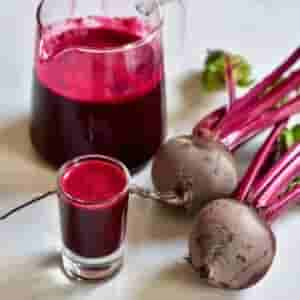High blood pressure, labeled as a silent killer due to its destructive nature that most of the time goes undetected, can also significantly increase the risk of cardiovascular diseases and must be managed swiftly. Here’s one vegetable that can lower blood pressure and help against other related diseases.
Beetroot, which contains nitrates, has been discovered to widen the blood vessels. Several studies have noted that a glass of beetroot juice is sufficient to drastically lower blood pressure in individuals who are hypertensive.
The antioxidants may lessen both high blood pressure and cholesterol, while B vitamins help out in improving nerve function. The beetroot draws most of its benefits from beta-cyanins -antioxidants that help the liver and enhance and purify the blood.

A combination of iron and antioxidants also helps in cleansing the blood that could also benefit those who are suffering from anemia.
A study that was published in the Journal of Applied Physiology discovered the beetroot juice helped people aged 54 to 80 who suffered from stiffening of the arteries that bring blood to the legs.
A molecule called Nitric Oxide which is produced by the body under the impact of nitrate also supports its cells in communicating with each other by sending signals throughout the body. But the existence of other phytochemicals and antioxidants in the vegetable is what help manage conditions such as hypertension and linked heart disease.
In 2013, a study involving 15 participants found that drinking 250ml of beetroot juice, but high blood pressure readings by 10mmHg. The most significant effects happened from three to six hours after drinking the juice bringing some of the patients’ blood pressure back within the normal range.
Researchers also mentioned that the blood pressure reduction can be compared to the effects of stimulating medication.
“We were surprised by how little nitrate was needed to see such as large effect. Our hope is that increasing one’s intake of vegetables with a high dietary nitrate content, such as green leafy vegetables or beetroot, might be a lifestyle approach that one could easily employ to improve cardiovascular health,” Researcher Doctor Amrita Ahluwalia said.
Although beneficial, a group of researchers from Barts and the London School of Medicine cautioned that the side effects of beetroot juice could turn one’s urine pink but it is not harmful.
The UK guideline also suggested making some lifestyle changes like eating less salt, drinking less alcohol, and increase physical activity to reduce blood pressure.
The NHS also noted that eating a low-fat diet with lots of fiber like wholegrain, rice, bread, and plenty of fruit and vegetables can also help in lowering blood pressure.
Also Read: New Study Reveals Possible Cause Of Alzheimer’s Disease


